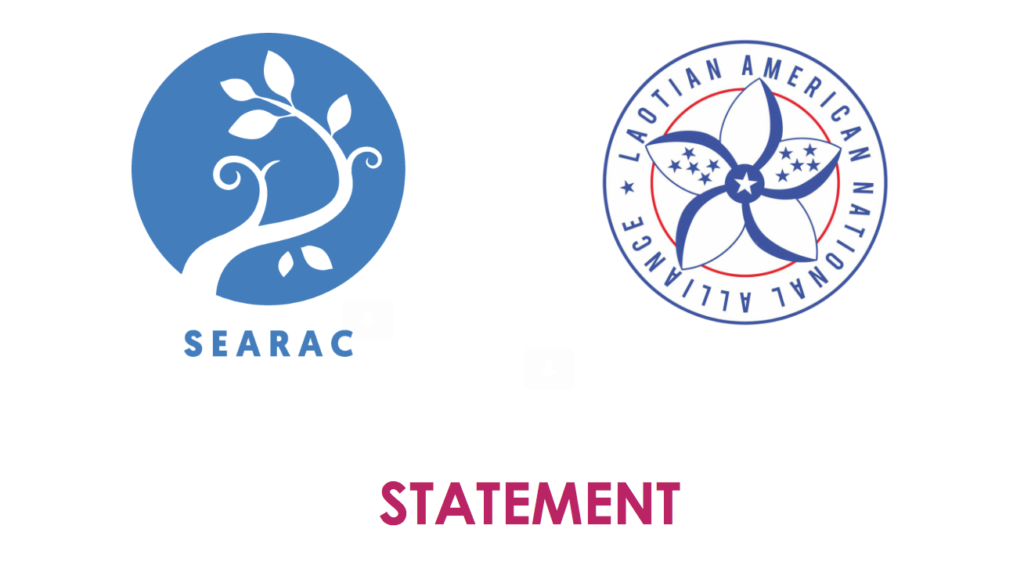March 5, 2019 IN: California, Education, Press Room
LANA, SEARAC commend bills supporting Laotian model curriculum, ethnic studies high school requirement

The Laotian American National Alliance (LANA) and the Southeast Asia Resource Action Center (SEARAC) applaud California’s continued commitment to advancing ethnic studies curriculum for California’s public K-12 school systems by introducing California Assembly Bill (AB) 1393– Laotian history and cultural studies and California Assembly Bill 331– Ethnic studies high school graduation requirement.
With the passage of California Senate Bill (SB) 895 in September 2018, and the momentum of bringing forth narratives of Southeast Asian refugee communities, Assemblymember Dr. Shirley Weber introduced AB 1393 on Feb. 22 to advance education equity further for Laotian Americans. This bill would require the commission to develop and submit to the state board a model curriculum relative to the history and cultural study of Laotian refugees (inclusive of Lao, Iu Mien, Khmu, Phutai, Tai Lue, Tai Dam, and Tai Deng refugee communities), as provided, on or before Dec. 31, 2022.
These model curricula will complement California’s ethnic studies model curriculum. In January 2019, Assemblymember Jose Medina introduced AB 331. This bill would require high school graduation requirements to include the completion of a one-semester course in ethnic studies, in either the subject of social studies or English, based on the model curriculum in ethnic studies developed by California’s Instructional Quality Commission.
“Recognizing the Laotian refugee experience in our schools not only provides Southeast Asian American youth with the visibility, acknowledgment, and celebration they deserve but also enriches the education of all students by deepening their understanding around a subject that is historically overlooked,” says Jonathan Vorasane, chair of LANA. “We will closely monitor this bill and advocate for its passage.”
“It is important for K-12 public schools to teach and integrate the narratives of historically marginalized groups to instill self-determination in our students and in our communities,” says Quyen Dinh, executive director of SEARAC. “We encourage our Southeast Asian American community members in California and nationwide to join us in ensuring that all of our voices are represented in California’s final ethnic studies curriculum. Together, we can fight to hold public education institutions accountable to increase the awareness of marginalized communities’ histories and cultures, allow students to celebrate their cultural roots, learn about each other’s unique histories and experiences, and foster solidarity.”




